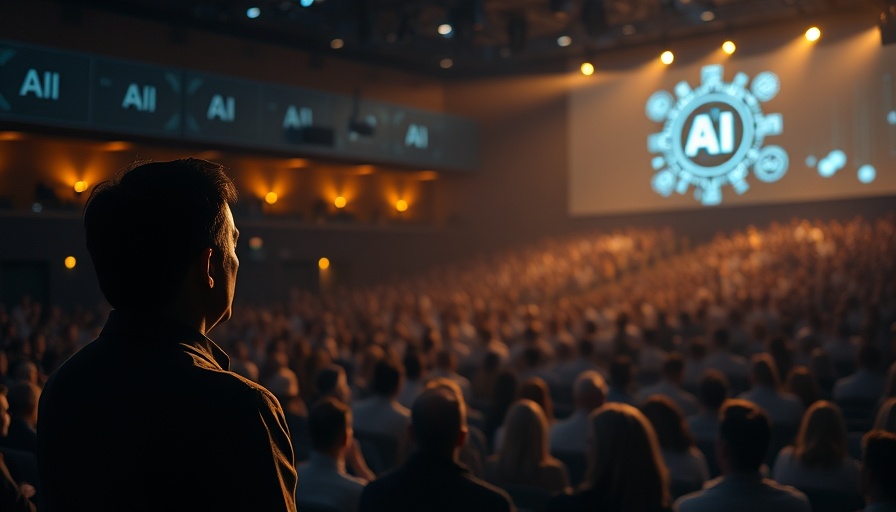
AI and Job Displacement: A Paradigm Shift
Megan McArdle's recent TED Talk has sparked a vital conversation about the future of work amidst the rapid advancements in artificial intelligence (AI). Rather than viewing AI as a mere threat to existing jobs, McArdle champions a perspective that emphasizes the potential for opportunity. By advocating for embracing AI's capabilities, she suggests that we can refocus our skills toward tasks that require human-specific abilities such as creativity and emotional intelligence, ultimately leading to more fulfilling career paths.
Understanding AI's Impact on Employment
The fusion of AI into various sectors has opened a floodgate of discussions regarding job displacement. Expert consensus indicates that positions involving routine decision-making are the most at risk of automation. However, jobs that require creative problem-solving or substantial human interaction are likely to thrive. As McArdle highlights, the transition toward AI can lead to job creation in fields we have yet to imagine, reshaping how we define success in the workforce.
Navigating the Transition: Implications for Workers
While the fears surrounding job loss due to AI cannot be dismissed, the narrative surrounding this topic is evolving. In her talk, McArdle sheds light on the importance of robust retraining programs and policy interventions to aid workers in adapting to a changing job landscape. Initiatives that promote skills development, diversity, and equitable access to new job opportunities make it possible to mitigate the risks associated with AI-driven displacement.
Insights from Experts and Current Trends
Research from institutions like McKinsey casts a dual narrative on the ramifications of AI: one that embraces the elimination of repetitive tasks while simultaneously igniting new economic growth. Other thought leaders emphasize the need for strategic policy frameworks that ensure the benefits of AI extend across all societal strata, rather than deepening existing inequalities. As we approach an AI-enabled future, the focus should be on developing adaptable skills and fostering an inclusive economy.
The Public's Reaction: A Spectrum of Responses
McArdle's optimistic view has sparked polarizing responses from the public, ranging from fear to excitement regarding future job security. While some voices propose drastic action to safeguard job roles, others welcome the movement toward a more creative workforce. This dialogue underscores the necessity for continuous education and open-mindedness in a world where change is the only constant.
Taking Action: Embracing Change for a Brighter Future
As we stand on the cusp of a technological revolution, it is crucial for all of us—workers and policymakers alike—to engage with this discourse proactively. Embracing change and advocating for educational pathways will enable society to harness AI's full potential, turning potential threats into opportunities. This is more than just an employment issue; it is a societal challenge that requires collective action.
As Megan McArdle's TED Talk illuminates, shifting our mindset to view AI as a partner in progress could be pivotal in transforming the workplace. Utilize this time to reassess and develop your skills, and embrace the opportunities that come with these advancements.
 Add Row
Add Row  Add
Add 




Write A Comment